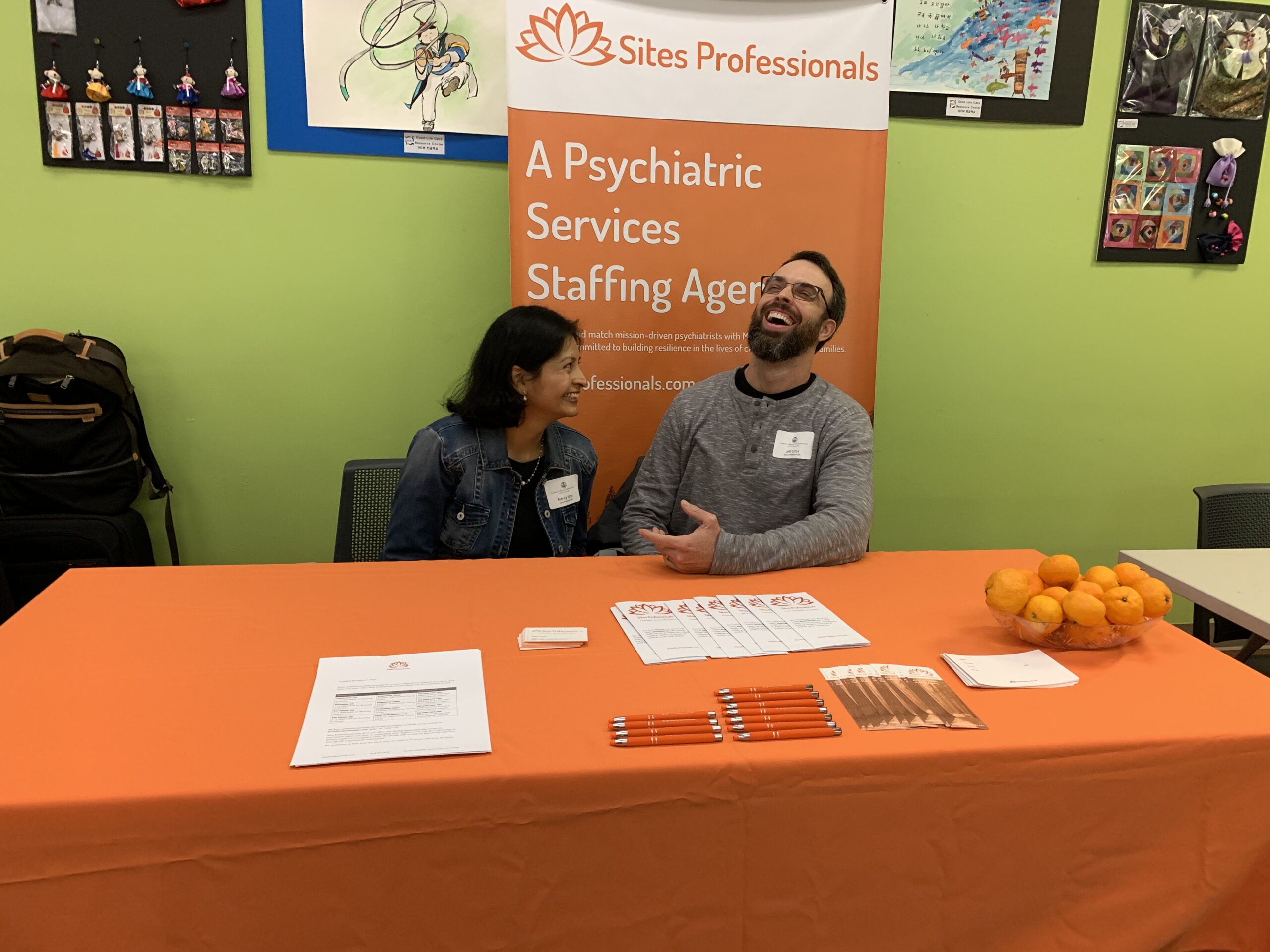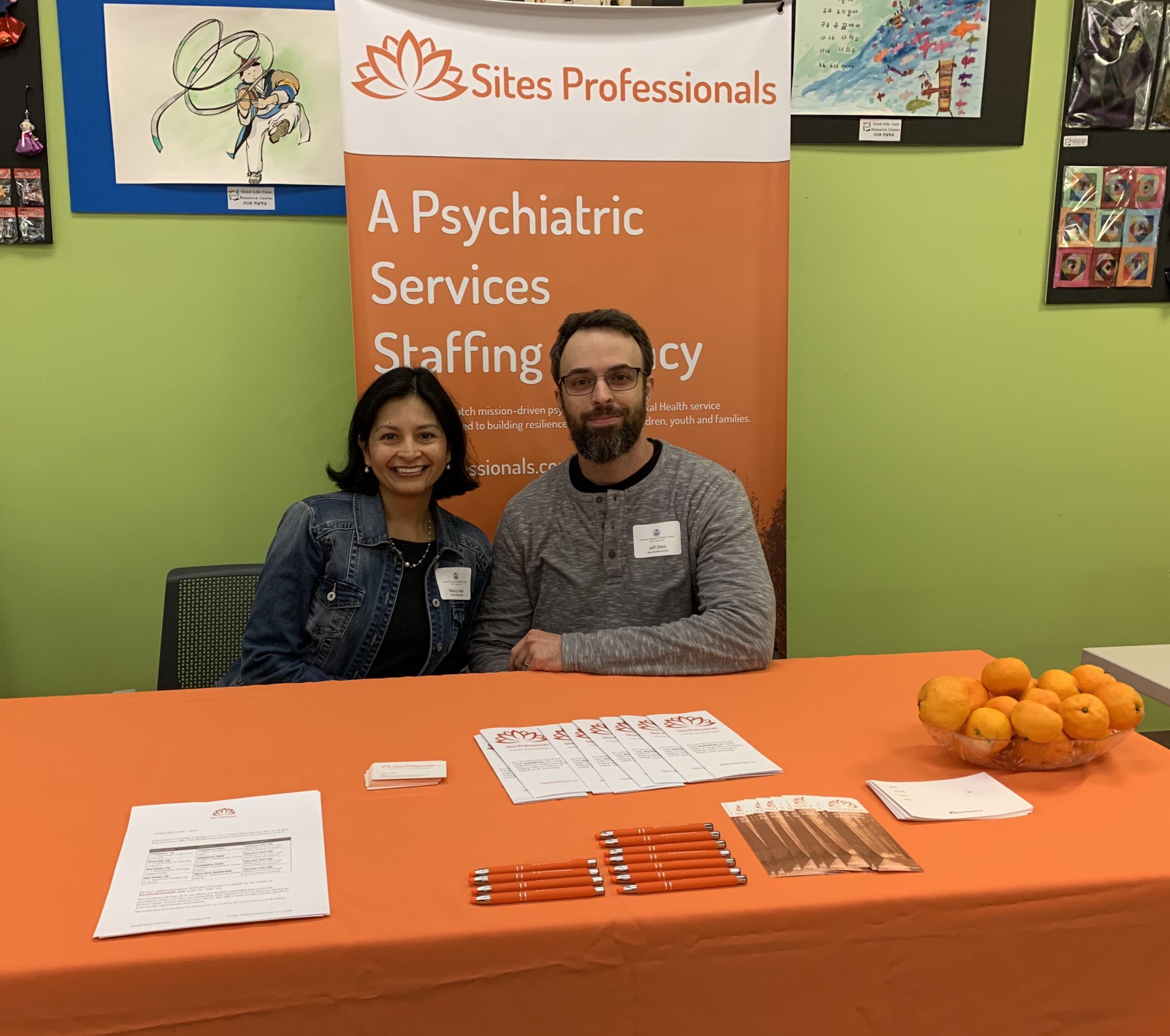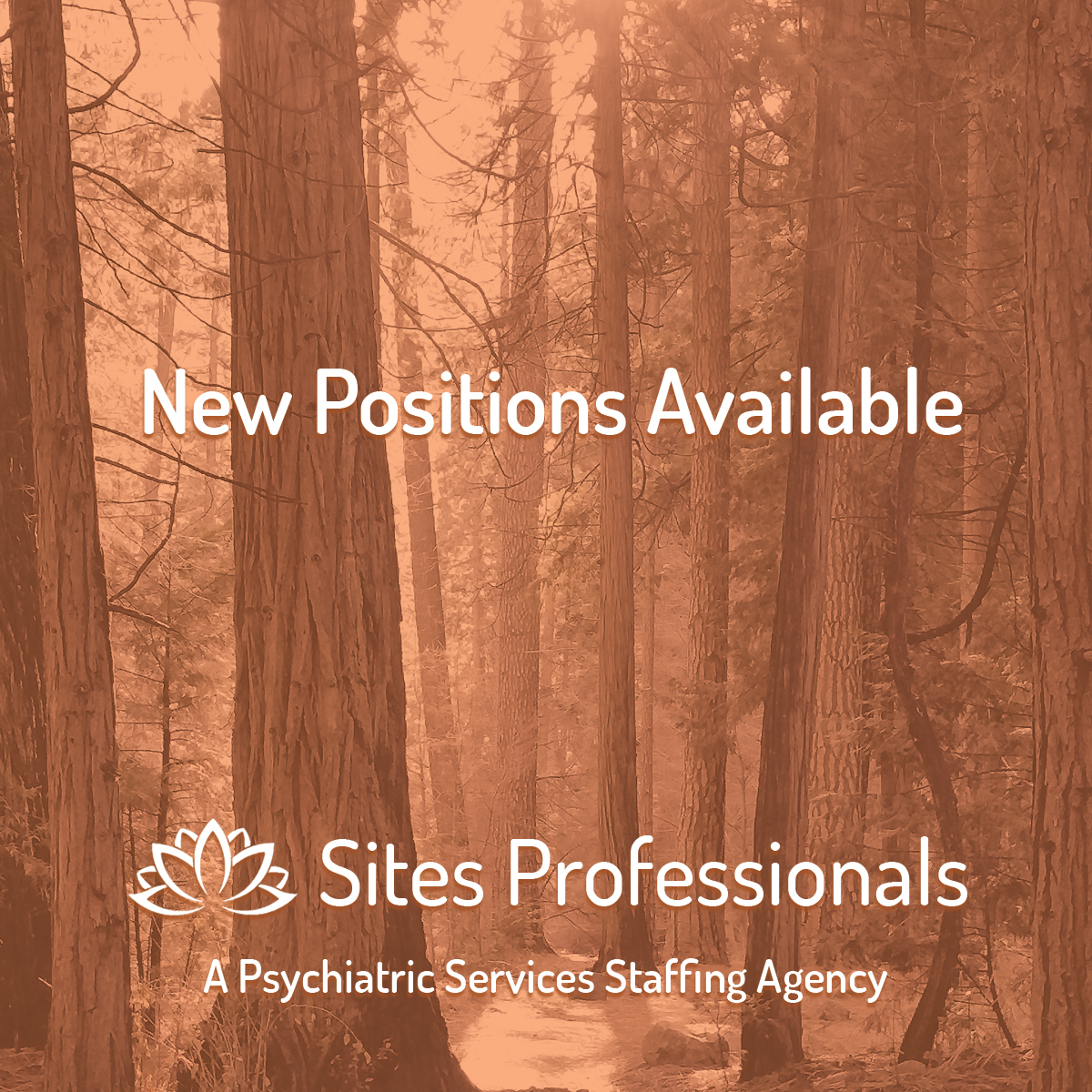Mental Health Agencies: We have psychiatrists available for part-time moonlighting in community mental health. Adaptable and team oriented, our psychiatrists are vetted, credentialed and insured.
Category: News
-

Adaptable Psychiatric Services
-
Lessons of 10 Years Spent Working From Home
My phone rings at 12:35 PM, every day Monday through Friday. It has since about 2010, when I began building my first business. I was based in Los Angeles, I had three partners in North Carolina, and we supervised development teams in Ukraine, Utah and Venezuela. I worked from home in a 1960’s-era two bedroom apartment I shared with my wife.
At first I was allowed the guest room as an office but then something incredible happened. In the midst of all the stress and uncertainty of having quit my job to found a startup – not paying myself, fretting constantly about my ability to provide for the two of us – we had twins.
I lost my office and about 4 months worth of sleep. Already in an agitated state, I started to forget lunch. Using the phone alarm as a reminder to eat started as a New Years’ resolution to take better care of my health. It was simple enough (and programable) for me to keep at it.
In 10 years of working from home I’ve picked up some habits that I hope you could find useful or at least entertaining.
One thing about managing remote teams is that the in-person tools we use to motivate and hold people accountable do not always translate to the virtual work environment. What does work? The answer is highly dependent on the members of your team. I wouldn’t presume to be able to tell you what to try with your team in an anonymous internet post like this one. In a call, perhaps. Until then, here are some thoughts:
TRUST: Trust your team. Set clear expectations and firm deadlines but relax on the supervision. We are all facing unique work-from-home circumstances and unless you are in TV or radio, it probably doesn’t matter when the work is done as long as it is completed on time. Many are now home-schooling their children. Challenges with shopping means that maintaining the household is spilling over into weekdays. All of us have earned a nap now and then. By now, all our work-days are likely to be fragmented. Define the goals you have for your team in simple terms, set deadlines and make yourself available for questions.
PATIENCE: Cool it with the video conferences. Two per day is plenty, even two could be too much if they drag on. If you have mental health practitioners providing services via telehealth for the first time, be mindful of the added challenges this presents. Working over video is still a fairly isolating experience and it requires adaptation. Even without technical glitches the pace of discussion has to slow to account for network latency. It is easy to step on each others sentences mid-thought when the video lags. We can also lose a lot of information normally communicated non-verbally. You may be surprised how much information we share by our posture, eye contact, pace of breath, etc. It takes time to get acclimated to reading non-verbal cues in this digital format, but it gets easier. We have had the pleasure of working with many practitioners who have thrived using telehealth. It is a wonderful tool and a skill that can be mastered. Do what ever you can to reduce technical problems, including providing new equipment if possible. Be patient, and understand that all of our jobs have become more complicated.
EMPATHY AS THE DEFAULT RESPONSE TO CONFLICT: Lastly, obviously, none of us have experienced anything like this before. Remember that we all react to change differently, and we adapt to it at different paces. Our adaptation will not always be linear, we will regress from time to time. If you find yourself in conflict with someone on your team, I would encourage you to first try to reframe the problem using empathy. Our goal should be to help one another. Together we will succeed.
Thank you for reading. I would love to hear your thoughts. Peace, and don’t forget to eat lunch.
-

Telehealth & Support
Dear Friends, Colleagues, Mental Health Professionals,
In this time of upheaval and uncertainty, most of us have experienced significant changes to how we go about our jobs. We have the great fortune of working with amazing people and we want to share some of that fortune with you. We would like to host a video conference about implementing mental health via telemedicine along with 1 or 2 experienced psychiatrists on our team. Just an open discussion of the process, what works, and how to prepare. We would like to gauge interest before we set a date. Please share and let us know if you are interested. This would be free, but invite-only.
Separately, some on our team have offered to talk with practitioners in need of support during these difficult times. Message us, and we’ll get you connected.
– Nancy & Jeff
3/30/2020 -

We Are Open
March 24, 2020
Dear Members of the Mental Health Services Community,
We remain open and operational during the “Safer at Home” response to the COVID19 outbreak. We are, like many of you, conducting meetings via video and phone. The demand for psychiatric services has not diminished among those in need, and we are doing everything we can to help you meet it. Whether it’s finding part time or full time psychiatric coverage, implementing telemedicine, or navigating the challenges of billing and administrative hurdles – we have experience that may be of use to you and your patients.
Thank you for all that you do.
Jeff & Nancy
-

2020 Wishes
Happy New Year from Sites Professionals! May you find happiness and fulfillment as you help others in the new year. -

Career Fair December 2019
We had a wonderful time last Saturday at the Southern California Psychiatric Society Career Fair. Nancy and I enjoyed meeting everyone!-Jeff
-

Onboarding Worksheet Available (Video)
New from Sites Professionals, get our Onboarding Worksheet for Psychiatrists entering positions in community mental health.
-

New Video and New Positions Available
We posted a new video about our processes on the Agencies Page, check it out and let us know what you think.
We’ve also updated our Positions Available with the latest job openings for psychiatrists. Don’t see what you’re looking for? Please call us for the latest available positions!
Cheers!
-

Matching Psychiatrists with Community Mental Health Agencies
We posted a new video starring Jeff. At Sites Professionals, our driving passion is to help you give your clients the quality of care they deserve. We do this by matching psychiatrists with agencies doing excellent work in the field of mental health. For psychiatrists wanting to have an impact in community mental health, Sites Professionals can find you a placement anywhere from 4 to 40 hours per week and we take care of credentialing, malpractice insurance, tech support and more. For agencies, we can help you build or grow your psychiatry services with in-person, telepsychiatry, and hybrid arrangements. We work with you to find long term placements matched to your team and clients
Call us today to find out more: 818-802-6782
-

In the Helping Field: Reset Your Mindset Against Scarcity
Scarcity has been in the news lately. It is something with which most in the field of mental health are entirely familiar.
Our community faces a variety of serious challenges to the health and well-being of its citizens. Last week we learned that the homeless population in Los Angeles County grew by 12%, despite the spending of voter-approved hundreds of millions of dollars in 2018. In the same week LAUSD’s measure EE failed at the ballot. The measure would have provided desperately needed funding to local schools, but may have exacerbated the county’s housing-affordability and homelessness crisis by taxing living space. In other words, two crisis pitted against one another in competition for resources.
Like access to healthcare, access to secure housing and a quality education directly impact the mental health of our fellow citizens – our friends, family, and neighbors. These issues are so fundamental and essential that it can be maddening that they are left scrounging for resources as if they were of second-tier importance. It would be hard to imagine a EE or HHH-style ballot initiative required to fund trash pick-up, or a PTA-style bake sale to support new stop signs. By some measures we are as a society more clear-eyed on the significance of things than we are of people.
If it makes you want to scream, I suggest going ahead and letting one out. It will feel good and may even be productive. But then – and forgive me for the expression – it will be time to roll up our sleeves and continue to get back to work.
Those of us in the field of mental health are experienced in operating in an environment of scarcity. It is the stark reality of our industry that there are rarely enough resources available to be able to supply our clients with all we believe they deserve. Where funds are short we fill the gaps with effort, “elbow grease”. We end up getting the job done at the cost to ourselves and our teams. It is unfair, but frequently it seems the case that those who are most passionate about their professional calling are the ones left to fight the hardest for the means to do the job they love. It is as though the intangible benefits have been factored into the ledger by the powers that be.
If scarcity in mental health were a soup, it would have three main ingredients: A willful myopia for the impact of bad outcomes long-term; an impression that the workforce is replaceable by a new crop of college graduates every couple of years; and a knowledge that even employees in the throes of burnout will continue to attempt to do their best by the clients they are so passionate to serve.
We are all familiar with scarcity, but we have given it more power over us than it deserves. When it starts sneaking into meetings to which it wasn’t invited; when it slips into company conversations as if part of a well-rehearsed mission statement; when it becomes the reason that great employees get stuck in backwater positions servicing a mission that hasn’t been assessed by leaders in years; when it keeps you from exposing your team to cutting-edge training on the business of mental health: that is when scarcity has metastasized from ‘fact of life’ to a destructive force.
Scarcity is truth but it is not the whole truth. Scarcity should never disrupt client care when there are dozens of treatment models and configurations available, as well as peer agencies, allies, and philanthropists to help fill in the gaps. Scarcity should not be the cause of high turnover, moral injury and inefficiency in teams when there are reams of data available about ways to motivate and incentivize people beyond salary alone. Do not let employees languish and be miserable just because they keep doing the work… until they don’t.
Scarcity should not keep you from running a business or being a part of a great team. It is no more than an entry in the ledger, one that must often be offset by creative means. To let scarcity claim too much credit for all that is wrong is to poison the means to make things right.
The work to fight against scarcity looks mundane at first. It involves processes like defining success for your clients in simple measurable terms, and then doing the same for members of your team. Look at things like disengagement, turnover and the rates of accidents and errors. Analyze operational and overhead expenses against industry benchmarks and use the data to identify areas where there is opportunity to become more efficient with the resources you have. Invest in people presenting long-term solutions. Conduct postmortems with your team on both successes and failures, then distill them into actionable lessons that can be included in trainings. This is what great companies do. During Steve Jobs’ waning years, Apple commissioned case studies on business decisions during his time in order to prepare future generations of leadership with the skills and decision-making processes that lead to Apple’s spectacular success. Devise and safeguard the means for employees to be heard and to hold managers accountable. Build a culture of trust and good faith to keep problems from festering in silence.
The problems of scarcity (real and imagined) can be conquered with stoic incremental improvement. You must not let scarcity keep you from what drove you to the helping-field in the first place: Hope.
-

Mechanics of Being Client-First in Community Mental Health
Being client-first in community mental health means prioritizing the needs and quality of treatment of clients above all else. This much is self-explanatory, but incorporating a client-first mindset in a community mental health setting can be complicated. In practice it goes well beyond the points of contact – scheduling, direct care, follow-up, etc – to program design, staffing, administration, IT and operations.
The intake process alone involves not just screening and identifying appropriate clients but a knowledge of your reimbursement contracts, the caseloads and training of practitioners, the composition and readiness of your support team.
The further you move from direct care, the easier it is to lose sight of what it means to be client-first. Consider some common issues related to IT. Does your team have reliable access to your electronic systems for communication and reporting? Do you have network redundancies in place for mission-critical applications like telepsychiatry and EHR access? Do you utilize E-prescribing for consistency and accuracy? These are just a few of the questions every organization should ask itself. Answering ‘no’ is the first step to discovering new opportunities to improve.
For those that think they can’t improve, scarcity is often identified as the reason. Budgets are thin and resources are scarce. However, many of the actions that appear to be expensive will save you money in the long run by reducing inefficiency and preventing costly mistakes and downtime.
As you look for new ways to better serve your clients, consider that some changes to your supporting processes may be a cost effective move toward being client-first.
-

New Positions Available – May 2019
Psychiatrists: Sites Professionals has several new positions available, ranging from 3 days per week to twice a month. Not only do we match you with a position that meets your interests and availability, we will help you navigate documentation and technology with trainings and tech support. We also provide occurrence-based malpractice insurance and take care of credentialing. More information on our “Jobs” tab.